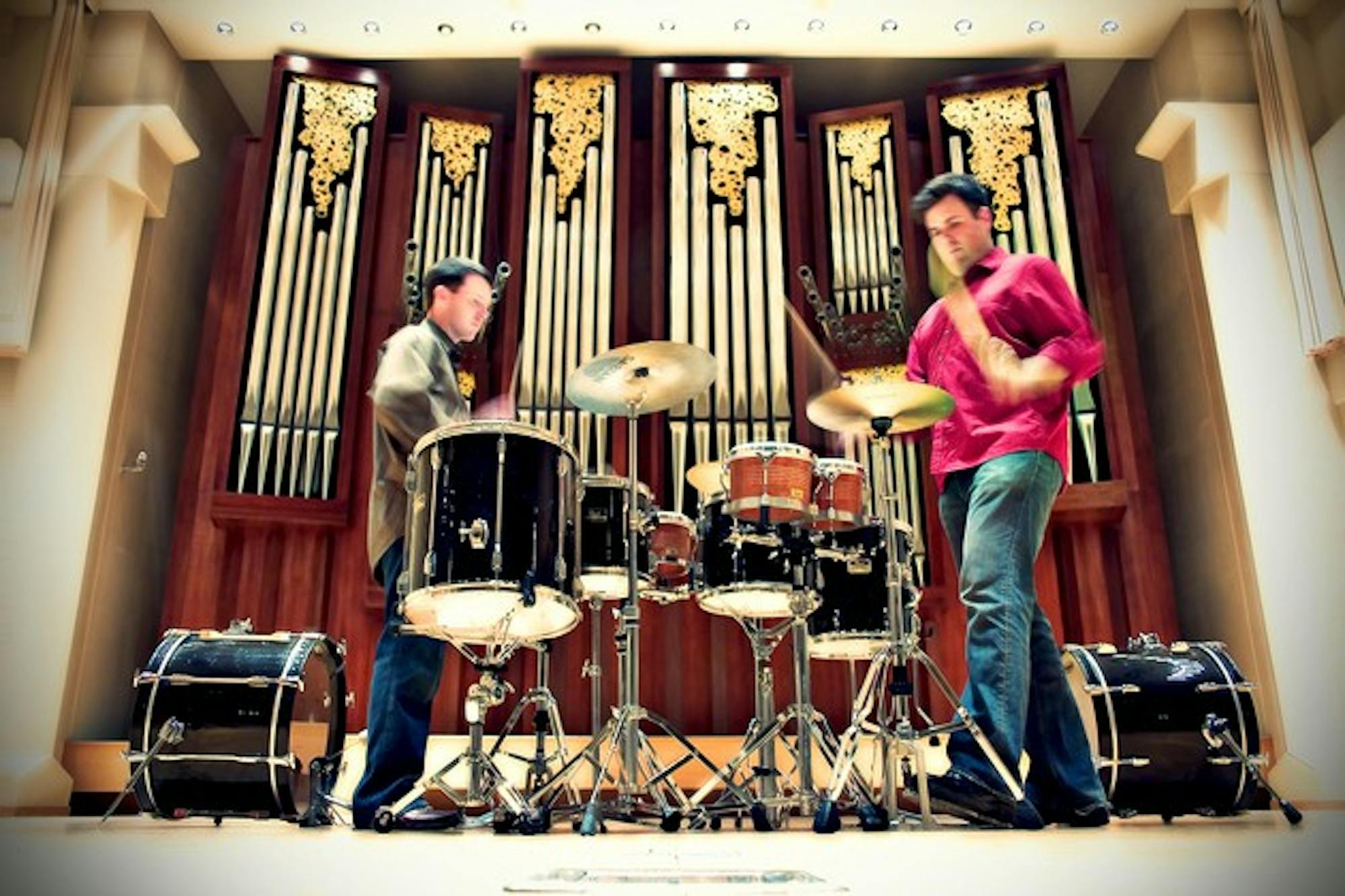For the concert series, anything goes, including performances of experimental and avant-garde music, along with improvisational pieces. The series lives up to the definition of music used by Douglas Perkins, director of the music lab, as "sound with intention almost anything, as long as you put it together in your head in a musical way."
"The Way to Go Out," which began three years ago, also serves to provide Dartmouth graduate and undergraduate students with performance experience. Students perform alongside guest musicians, giving them a chance to interact with professionals, Perkins said in an interview with The Dartmouth.
"Even though we're just across the street from campus, it's really like we pack the car, we go out, we play a real show at the Spheris Gallery," Perkins said.
The first two parts of the Thursday concert featured performances by student members of the music lab, most of whom are involved in the College's digital music graduate program. The program includes a small, tight-knit group of six graduate students that study digital music with a focus on music composition, performance, computer science, visual arts, engineering, physics and music cognition.
"The program is really just people finding ways to use technology in their music making," Perkins said. "Music and technology live together in this age."
Thursday's performance of "The Way to Go Out" began with "Pendulum Music," an unorthodox work by Stephen Reich that set the tone for the rest of the show. In order to set up "Pendulum Music," four students from the music lab stood in front of four microphones suspended above four speakers. Each student held a microphone, pulling it back and then gently releasing it over the speaker to induce a pendulum motion. As the microphones neared the diaphragm of the speakers, it produced a feedback tone.
Beginning with a strong, unison "ba-woop" sound as the microphones lost velocity, each speaker began to produce a discordant, gravelly "boop," eventually fading into a high pitched squeal of feedback as the microphones gradually slowed to a stop.
For the second part of "The Way to Go Out," members of the music lab performed improv realizations of various musical pieces, utilizing conventional instruments such as the melodica, vibraphone and electric guitar, as well as unconventional instruments, such as a steel chain, an aerosol can and an opened metal tin can.
The otherworldly sounds produced by the music lab were reminiscent of a disjointed abstract film, which was further enforced by the continuous images of raindrops, microbes and a woman swimming that flashed on a television screen behind the performers.
The third and final part of the concert showcased guest artists Maxwell and Porter. The two performed "American't," "Party Music Number 1" and "Casual Musket Pig," all works by Maxwell, as well as "Music for the Merry Maiden" and "One4" by John Cage. Maxwell played drums, keyboard and the guitar, while Porter played both the clarinet and the bass clarinet. The duo also utilized an electronic tape recording for supporting music.
Each of the duo's performances featured the use of pointed silences in conjunction with music from Porter and Maxwell's instruments. "Music for the Merry Maiden" also employed the use of the spoken word, with voice-warped readings of various plays presented alongside the music.
The next concert in the "The Way to Go Out" series will be held at Spheris Gallery on Dec. 3.




